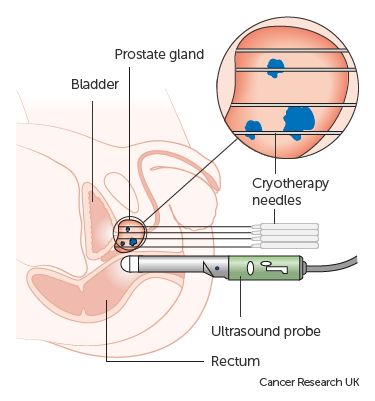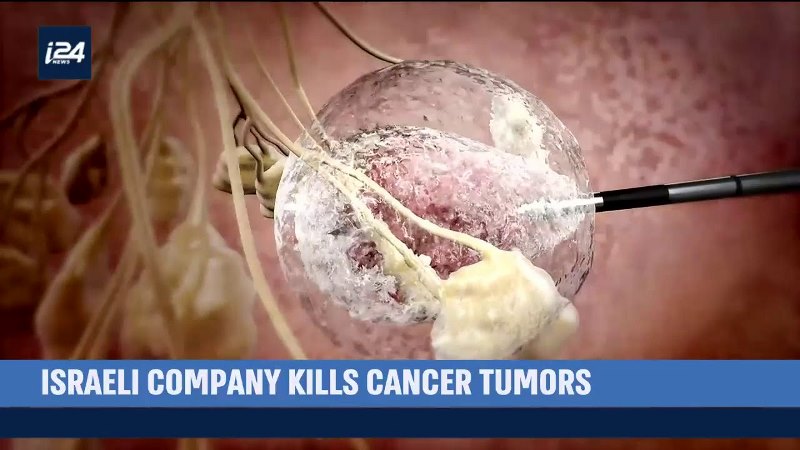For more than a year now, a lot of hype and excitement has been generated, in cancer circles, about the revolutionary Israeli cancer treatment known as IceCure. This hype, though, has not translated well into global news. While there are plenty of articles about IceCure in Israeli news outlets like i24 News and Globes, there is no mention at all on the BBC or CNN. So what is IceCure and can it cure cancer?
Well, as it turns out, IceCure is not the name of the treatment, it’s the name of the company developing the treatment. To quote the IceCure website:
IceCure Medical is an Israeli medical device company founded in 2006 to advance treatment of cancerous tumors.
https://icecure-medical.com/company/about-us/
The new cure, in question, is IceCure’s latest technological development, called ProSense. I should point out that ‘ProSense’ is a trademarked name. I only mention this because I don’t know if I ought to put the ‘TM’ in superscript after the word. And, as I don’t know how, please mentally place a ‘TM’ after any and all uses of the word ‘ProSense’. Thanks.
Okay; moving on.
IceCure’s core technology has always been based around cryoablation, using liquid Nitrogen. The ProSense system is also a cryoablation technique, based around liquid Nitrogen. The rumours that took sites like Quora by storm, that Israel had the cure for cancer and it’d be available within a year, seem to coincide with the release of the ProSense system. At first glance, it seems like an overblown marketing ploy by IceCure. In actual fact, it was something very different…
But, before I come on to that, I want to talk a bit about cryoablation.
Cryoablation is the use of extreme cold (cryo) to destroy tissue (ablation) When used to treat cancer, the tissue that is being targeted is that of the tumour. There are other forms of ablation used to treat cancers, including laser and radiation. In fact, when I had my third recurrence, ablation was one of the options discussed. Although, in my case, it was Stereotactic Ablative Radiotherapy (SABR). Happily, though, I ended up having surgery.
Cryoablation works by introducing very cold liquids, through hollow needles, into or adjacent to the cancer cells. This kills the cancer cells by freezing them to death.
Cryoablation is most effective against solid tumours, such as:
- Breast
- Kidney
- Liver
- Lung
- Prostate
Cryoablation is not a particularly new treatment. In many parts of the World, cryotherapy has been used on cancers since the 1960s. The ProSense system is simply a refinement of an existing concept. The main selling point is that the hollow probe, delivering the liquid Nitrogen, can be guided by CT scan or ultrasound. As this image from the Cancer Research UK page on Cryotherapy for Prostate Cancer indicates, this is not a new idea:

Which might leave you thinking. “What the Hell is IceCure playing at?!”
Because, at first glance it looks like IceCure has been over-hyping the release of their new system ad absurdum. Promising the World, and a cure to cancer, from a variation on a theme. And, while I’m sure the ProSense is a very good piece of kit, does it really warrant such hyperbole?
Definitely not!
Which is why IceCure never did anything of the sort.
Do you ever notice how, sometimes, virtually identical films are released by Hollywood at the same time? Things like:
- Armageddon and Deep Impact, in 1998
- Red Planet and Mission to Mars, in 2000
- The Prestige and The Illusionist, in 2006
- Olympus Has Fallen and White House Down, 2013
Or like when you’ve been waiting ages for a bus and then two come along at the same time…?
Well, that’s what’s going on here.
Around the same time that IceCure was trumpeting the release of its ProSense system, another Israeli company was also making press releases.
In late January 2019, Dan Aridor, of Accelerated Evolution Biotechnologies Ltd. (AEBi), is quoted as saying:
We believe we will offer in a year’s time a complete cure for cancer.
Our cancer cure will be effective from day one, will last a duration of a few weeks and will have no or minimal side-effects at a much lower cost than most other treatments on the market.
https://www.jpost.com/HEALTH-SCIENCE/A-cure-for-cancer-Israeli-scientists-say-they-think-they-found-one-578939
And, so, when people started looking for the ‘Israeli Cancer Cure’, they found IceCure and ProSense instead of AEBi and MuTaTo.

Through no fault of their own, IceCure was getting associated with fantastical claims about a cure for all cancer. Don’t get me wrong, the levels of innovation and progress surrounding ProSense might have been promoted somewhat… enthusiastically! But, that’s marketing.
In answer to the question, can IceCure cure cancer. Yes it can. But only for a limited number of cancer types, in a limited number of circumstances.
While there isn’t a huge amount of data, for these newer surgical techniques, regarding the long term survival rates of cryoablation patients, there have been some promising results. That said, the effectiveness varies between cancer types, for example:
- Prostate cancer – reasonably effective but can lead to impotence.
- Kidney cancer – as effective as other types of ablation techniques.
- Breast cancer – only effective on very small tumours and often requires follow-up surgery.
It is clear, then, that the IceCure versions of crypablation can cure cancer, in very specific circumstances. IceCure, and ProSense, however, is far from the cure for all cancers, everywhere. But then, IceCure never claimed that it was…
As for AEBi and its MuTaTo treatment; that’s a question for another time.
